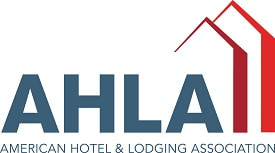|
As temperatures heat up, so will the threshold for overtime qualifications. On April 23, the U.S. Department of Labor (DOL) threw a curveball into the summer plans of hotels across the nation. Effective July 1, a new rule would dramatically increase the threshold for overtime pay so that all employees, salaried or hourly, would be eligible for overtime if they make up to $43,888 per year. But that’s not all. The threshold jumps even higher on January 1, 2025, when employees making up to $58,656 become eligible for overtime pay. Both the National Restaurant Association and the American Hotel & Lodging Association expressed disappointment in the DOL’s decision, explaining that the rule could potentially strain small business owners and eliminate jobs, especially managerial positions. Littler, a partner of the MRLA Legal Center specializing in labor and employment matters, advises employers to review salaries and classification policies to comply with the updated threshold. “You have to make a decision: do we reclassify this person? Do you increase what their salary is so you continue to meet the basis? Those are things people should be evaluating at this point, so that they’re prepared when July 1 comes,” says Mickey Chichester of Littler’s Detroit branch on a recent episode of MRLA's podcast What's with the Pineapple? The hospitality job most impacted by the rule, he says, will be managers, assistant managers, administrators, and supervisors. Once the new role goes into effect, however, every hospitality employee who makes $41,000 per year will be awarded time-and-a-half once they top 40 hours a week. The hospitality job most impacted by the rule, he says, will be managers, assistant managers, administrators, and supervisors. Once the new role goes into effect, however, every salaried hospitality employee who earns a salary of $43,888 per year or less will be entitled to time-and-a-half (“overtime”) once they top 40 hours a week. “Essentially, if you’re not paying that salary basis, and you’re identifying those individuals as exempt from overtime, you would lose that exemption and be subject to having to pay them overtime, or an audit situation, or provide backpay, provide liquidated damages. It becomes a misclassification issue,” explains Chichester. Legal challenges have been filed and employers should monitor developments as the July 1 deadline nears. “Hope for the best, prepare for the worst,” he says. In the meantime, the MRLA Legal Center has collected resources and references as owners and operators restructure in response to the impending overtime change. Access the DOL Rule, FAQ, an overview provided by Littler, and more through the MRLA Legal Center. Additionally, MRLA members are entitled to fifteen minutes of free legal consultation with partnering law firms. Email [email protected] to get started.
To hear more advice from Mickey Chichester about preparing for the new overtime threshold, tune into “What’s With the Pineapple” podcast, recorded and produced by the MRLA.
0 Comments
Leave a Reply. |
Archives
July 2024
Categories
All
If you find these articles valuable, become a member of the MRLA to access irreplaceable resources and support.
|
- About
- Advocacy
- Membership
- ServSafe
-
Legal + Resources
- Legal Consultation >
- Help Desk
- Industry Mental Health Resources
- Workforce Resources >
-
Resources
>
- Money-Saving Resources >
- Restaurant & Lodging Resources >
- National Hotel Associations >
- Human Trafficking Prevention & Awareness Resources >
- National Restaurant Association >
-
Government Resources
>
-
State of Michigan
>
- Department of Agriculture and Rural Development
- Find your County Health Department
- Michigan Liquor Control Commission
- Catch and Cook Program
- Michigan Food Safety
- Unemployment Agency
- Workers' Compensation Agency
- Bureau of Construction Codes
- Michigan Department of Treasury
- Michigan Senate
- Michigan House of Representatives
- Federal Resources >
- Government Search Engine >
-
State of Michigan
>
- National Food Safety Month
- Buyer's Guide
- MRLA OSHA Store
- Events
- News
- Foundation
- Member Login
|
Copyright Michigan Restaurant & Lodging Association. All Rights Reserved.
225 West Washtenaw | Lansing, MI 48933 Phone: (800) 968-9668| Contact Us Privacy Policy Terms of Use |
|

 RSS Feed
RSS Feed



